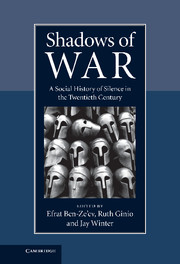Book contents
- Frontmatter
- Contents
- Notes on contributors
- Preface and acknowledgments
- Part I Framing the problem: Multi-disciplinary approaches
- Part II Europe
- Part III Africa
- 6 Silences on state violence during the Algerian War of Independence: France and Algeria, 1962–2007
- 7 African silences: Negotiating the story of France's colonial soldiers, 1914–2009
- 8 Now that all is said and done: Reflections on the Truth and Reconciliation Commission in South Africa
- Part IV The Middle East
- Index
- References
7 - African silences: Negotiating the story of France's colonial soldiers, 1914–2009
Published online by Cambridge University Press: 04 May 2010
- Frontmatter
- Contents
- Notes on contributors
- Preface and acknowledgments
- Part I Framing the problem: Multi-disciplinary approaches
- Part II Europe
- Part III Africa
- 6 Silences on state violence during the Algerian War of Independence: France and Algeria, 1962–2007
- 7 African silences: Negotiating the story of France's colonial soldiers, 1914–2009
- 8 Now that all is said and done: Reflections on the Truth and Reconciliation Commission in South Africa
- Part IV The Middle East
- Index
- References
Summary
In his short story ‘Fahavalo,’ the Malagasy author Jean-Luc Raharimanana tells of his 1994 encounter with an old man who stands on a beach and stones a dead dog. A local resident explains to the author that the old man had lost his mind after having witnessed a massacre in his village during the suppression of the Malagasy insurrection in November 1947. The perpetrators were black colonial soldiers. Afterwards dogs devoured the unburied villagers' bodies. Unable to forget the moment, the man kept stoning dogs whenever he saw them.
Throughout the massacre, this man kept silent. Forty-seven years later, the madman was still silent, expressing his memories of the crime he had witnessed through gestures rather than in words. Silence, as the story's narrator puts it, sometimes calms the soul but the tongue naturally hates its weight. Silence is heavy; it is substantial. It is this substance which the narrator presents to us, the readers, in his account of the apparently irrational, but deeply expressive image of the stoning of a dead dog.
This dialogue between words and their absence, with both doing the work of remembrance, is a central theme in this book. Raharimanana's story enables us to glimpse elements of a certain African silence – the one pertaining to the exercise of force and colonial brutality in Sub-Saharan Africa.
- Type
- Chapter
- Information
- Shadows of WarA Social History of Silence in the Twentieth Century, pp. 138 - 152Publisher: Cambridge University PressPrint publication year: 2010
References
- 4
- Cited by



